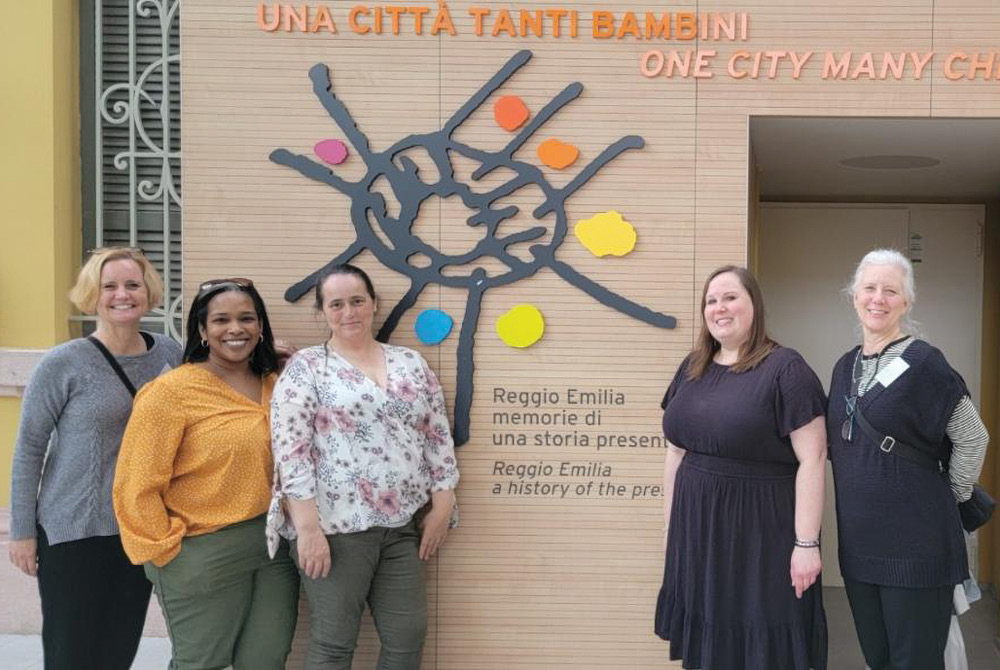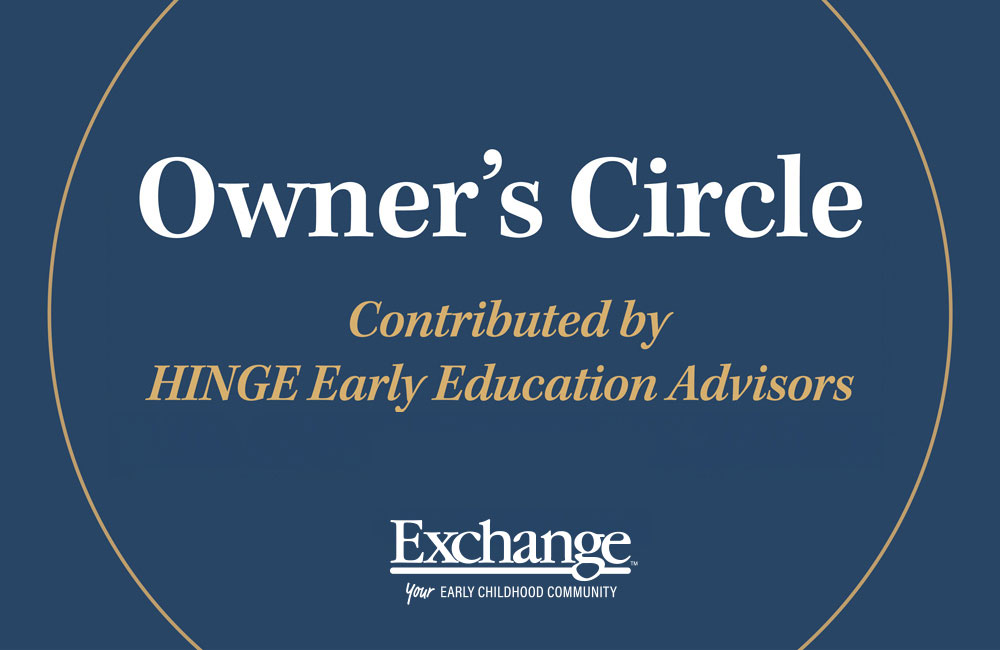Transformational coaching is an approach in which coachees learn to practice self-reflection, and to question and examine the perspectives, values and beliefs influencing their behaviors and habits, which consequently determine their outcomes and results. Coaches model these skills in their interactions with coachees, emphasizing a learning partnership that integrates supported experimentation and ideation of professional practices. Transformational coaching recognizes that goal setting and action planning are important, and that new actions are needed to generate different results. It also recognizes that goal setting and action planning alone are usually not enough to achieve sustainable results and lasting behavioral changes. Transformational coaching, therefore, examines the deep underlying reasons and motivations grounded in personal values and beliefs that are behind a coachee’s behaviors and habits.
Reflection is the heart of transformational coaching. Because reflection facilitates the change process and grooms change skills in a meaningful and intentional manner, it supports the achievement of sustainable “sticky” change. Transformational coaching allows the coachee to learn and use reflection as a professional practice to cultivate new habits and, consequently, sustainable change. Additionally, this approach uses an appreciative coaching methodology, empowering the coachee to be self-responsible. It transfers power to the coachee to leverage reflection, attitudes and change skills. From their internal vantage point, the coachee is empowered to become a proactive critical thinker with greater abilities to accomplish desired or new goals and to implement actions more independently over time.
Transformational coaching focuses on what’s holding behaviors and habits in place and what values, beliefs and emotions are contributing to current practices and outcomes. By exploring what is holding habits in place, the coachee can see more clearly what changes might be needed to achieve new desired results. In talking to early childhood coaches across the country, we repeatedly hear that coachees do not seem motivated to do what they already know how to do. Often coachees may not really want to make changes to their practices, which are often indicated by data gathered from observations, assessment and/or evaluation tools used to identify quality indicators of performance. This type of scenario often drives coaches to try, unsuccessfully, to inspire coachees to make changes to meet compliance expectations, instead of helping them explore their intrinsic motivation and desire to grow as a professional.
A key component of the transformational coaching approach is to explore and shift the motivational incentive from an external expectation for compliance to an internal desire for professional growth and change. Cultivating intrinsic motivation sets a foundation and mindset for a culture of continuous quality improvement, helping shift the mindset of both coach and coachee from compliance, which accompanies and may permeate Quality Rating Improvement System (QRIS) efforts, to a mindset of continual change and growth—embracing an attitude of lifelong learning.
The role of the transformational coach, therefore, is that of a change agent, a thinking partner, facilitator of thinking, and sometimes an accountability partner. A coach’s role is to empower people to learn how to reflect and how to thoughtfully make data-driven decisions to improve their practices, solve their own professional problems, and be responsible for their own learning by learning how to change. The intention of this approach is to groom the coachee’s ability to change and learn about any content with skill and, hopefully, some grace and joy. We see this approach as a way of “getting better at getting better” (Young, 2017). Fostering continuous improvement is often more important for a coach than simply being a content expert, with the ultimate goal of promoting real change and growth over time.
In the more traditional transactional coaching approach, the focus is often specifically on external results and outcomes (Terrell and Hughes, 2008). The coach often completes an observation of the coachee to identify the needed changes in practice, provide feedback based on the observation, assist in creating goals based on the feedback discussion about the intended changes to be made, and then work with the coachee to develop an action plan to meet those goals. The coach as an expert is often embedded in transactional coaching, in that the coach uses a consultative/technical assistance facilitation strategy, frequently giving advice or suggestions and taking a lead in setting goals and action plans. This approach can sometimes leave the coachee with a sense of needing to “fix” their practices, which can be disempowering and uninspiring, and can create a dependency model in which the coachee habitually turns to the coach for the answers, rather than generating creative solutions for themselves.
By empowering the learner, transformational coaching is more aligned with a constructivist approach to learning. It emphasizes the importance for the coachee to increase reflection skills, learn through trial and error, and experiment and refine their practices. Additionally, it goes deeper than transactional coaching by emphasizing and examining the underlying values and beliefs that hold ineffective practices and stagnant results in place. Finally, transformational coaching identifies barriers and challenges that may need additional targeted action plans to ultimately achieve desired results (Hine, 2019).
Typically, few people become an early educator for the pay. Most often early educators experience a sense of calling, purpose, and even mission to work with our youngest citizens, in order to have a positive effect on future generations. As coaches, when we actively listen to early childhood educators, we can hear their passion, desire and vision, and we can help them witness, tell and develop their own professional learning story. Increasingly these internal motivators are concealed by the demands of our systems and programs. This often leads to stress and burnout, conflicts between internal motivations and program expectations or industry standards, and frustrations in trying to meet the needs of children and families in a society with increasing individual risk factors and systemic challenges.
We know caring for and educating young children is demanding work, but when it is aligned with an inner desire to contribute and make a difference in the lives of those young children, along with the needed skill sets to meet the demands of the industry, it is deeply rewarding. Transformational coaching can help align a coachee’s intrinsic motivation with a deeper understanding of and correlation with the quality indicators coaches provide and use as guidelines for quality professional practices.
Creating intentional professional practices is like cultivating a garden: we must prepare, plant, water, weed and harvest. Co-creating a trusting and respectful coaching relationship represents the soil preparation essential to future outcomes for both educators and the children they serve. Adopting an attitude of curiosity, nurturing growth, honing specific practices and facilitating the desire to change are part of planting the seeds. Each professional practice is an individual seed to grow. As with gardening, one cannot produce a new plant any faster than its own growth process allows. External pressures such as bugs, droughts or weeds create obstacles and barriers to steady growth, so consistent weeding and nurturing are necessary habits to develop. The tool of reflection, watering the soil with encouragement, tending the soil of relationship, and weeding out ineffective behaviors and negative thinking through transformational coaching are foundational for the cultivation process. Cultivating embraces action research and happens over time, ensuring that lasting, “sticky” change will grow from the efforts devoted to the cultivation process.
ADVERTISEMENT
Experimentation and refinement based on collected data are also part of the transformational coaching cultivation process, because when new ideas are implemented, learning opportunities from trial and error or unexpected consequences often appear. Making perceptible change requires tolerating the discomfort of not getting it right and not getting quick results, because real growth and change take time. The skills required to cultivate a garden include tolerating the discomfort of practicing new skills, changing small daily habits, identifying and weeding out barriers and obstacles, and using data to inform refinement. Harvesting is done by the coachee as they glean the fruits of their learning, including new professional habits and the tools to plant their own future gardens. And, it is the coach’s role to be a partner or co-gardener with coachees—the people we support. It is also the coach’s responsibility to tend to their own garden and growth along the way.
Because a coach’s role is that of co-gardener and change agent, they help coachees tolerate the discomfort and vulnerability of going through the change process, which includes practicing, experiencing failures, trying things out for the first time, taking risks, not knowing what the results are going to be, and taking what might seem like insignificant small steps. It is these repeated small steps, however, that create sustainable change and foster the adoption of effective consistent habits for early childhood professionals. For a coach to be steadfast in their role as co-gardener, they need to continuously reflect, learn, practice and change. The coach must understand and empathize with the feelings of discomfort and vulnerability associated with the change process and creating new habits. Furthermore, the coach needs to be very clear about their own perspectives, values and beliefs that influence their actions or habits as a coach.
Transformational coaching as a professional development strategy provides a unique opportunity to help early childhood educators rekindle their purpose for coming into this field in the first place. It can help them clarify their deepest determination and desire to make a difference in the lives of children. Additionally, when supporting early childhood professionals to commit, create and practice habits that foster high quality practices and interactions, success will only be achieved if the programs and systems in which they work also endeavor to achieve sustainable results and align with quality professional practices at a systemic level. Information and teaching alone do not change behavior; change requires reflection and practice. This is true for the coaches’ own transformation and deepening of their intentional coaching and professional practices.
Because relationships are the container for all learning, the coaching relationship is a unique opportunity to not only hone professional skills, but to also foster lifelong learning and broaden perspective and impact the efficacy of early childhood professionals. This happens one step at a time, to help professionals continue to “get better at getting better.” Igniting passion, purpose and dedication in people is essential to foster a culture of continuous quality improvement in our early childhood field.
Transformational coaches are in a unique position to develop relationships that help ignite those passions and support early educators to thoughtfully grow throughout their journeys as early educators. Coaches can also support programs to provide meaningful support to their staff, in order to successfully provide quality services for children and families—a goal we all hope and strive for but can only accomplish together.
References
Hine, C. (2019). Transformational Coaching for Early Childhood Educators. St Paul, MN: Redleaf Press.
Flaherty, J. (2010). Coaching: Evoking Excellence in Others, 3rd ed. New York: Taylor and Francis.
Olson, J. (2013). The Slight Edge: Turning Simple Disciplines into Massive Success & Happiness. Plano, TX: SUCCESS.
Terrell, J.B., and Hughes, M. (2008). A Coach’s Guide to Emotional Intelligence. San Francisco: Pfeiffer.
Young, B. (2017). Continuous Quality Improvement in Early Childhood and School Age Programs: An Update from the Field. BUILD Initiative. Retrieved from http://qrisnetwork.org/sites/all/files/conference-session/resources/Continous%20Quality%20Improvement%20in%20Early%20Childhood%20and%20School%20Age%20Programs.pdf.
Related
ADVERTISEMENT












